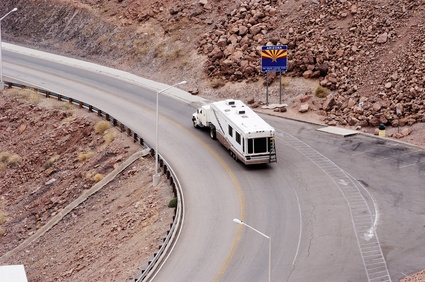
A fifth wheel trailer hooks up to the tow vehicle by fitting a pin into a hitch receiver, then clamping it in place. The receiver mounts so that the pin of the trailer carries the weight forward of the center line of the rear axle. This placement makes fifth wheel trailers stable and allows a fifth wheel trailer to haul more weight than a standard tongue hitch trailer, when you equip the tow vehicle with the correct hitch.
Determine the heaviest weight of the trailer being towed. The trailer weight should not exceed its gross vehicle weight rating. You can find the gross weight rating in the trailer's owner's manual, or on a nomenclature plate mounted to the side of the trailer. To calculate the needed hitch size, figure that the trailer will weigh its gross vehicle rated weight when you are towing it.
Calculate the hitch weight of the trailer. The owner's manual may give a dry hitch weight, which is the hitch, or pin weight with an empty trailer. The loaded hitch weight of the trailer can be quite a bit higher. A rule of thumb with a fifth wheel trailer is to figure 20% of the total maximum weight of the trailer for the hitch weight.
Decide what type of hitch you need for your tow vehicle. If you have a long bed truck, generally eight feet, you can use a fixed fifth wheel hitch. If you have a shorter bed truck, you will probably want to use a sliding fifth wheel hitch to minimize the risk of damage on sharp turns. The sliding hitch allows the trailer to slide back, and give more room to the front of the truck for tight turns.
Select a hitch that is higher in capacity than the gross vehicle weight rating of the trailer. The total hitch rating allows 20% of its rated weight for pin weight. If you know that your trailer has a higher pin weight than this 20% of the total hitch weight rating, then select the next higher weight capacity hitch.